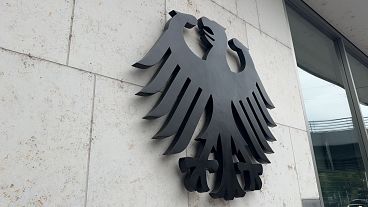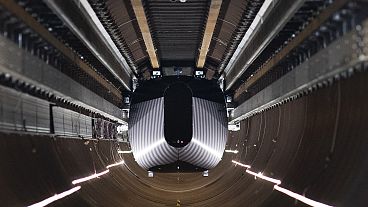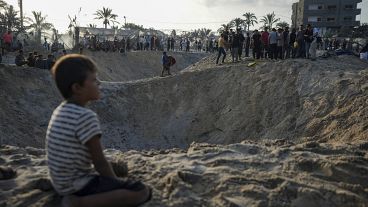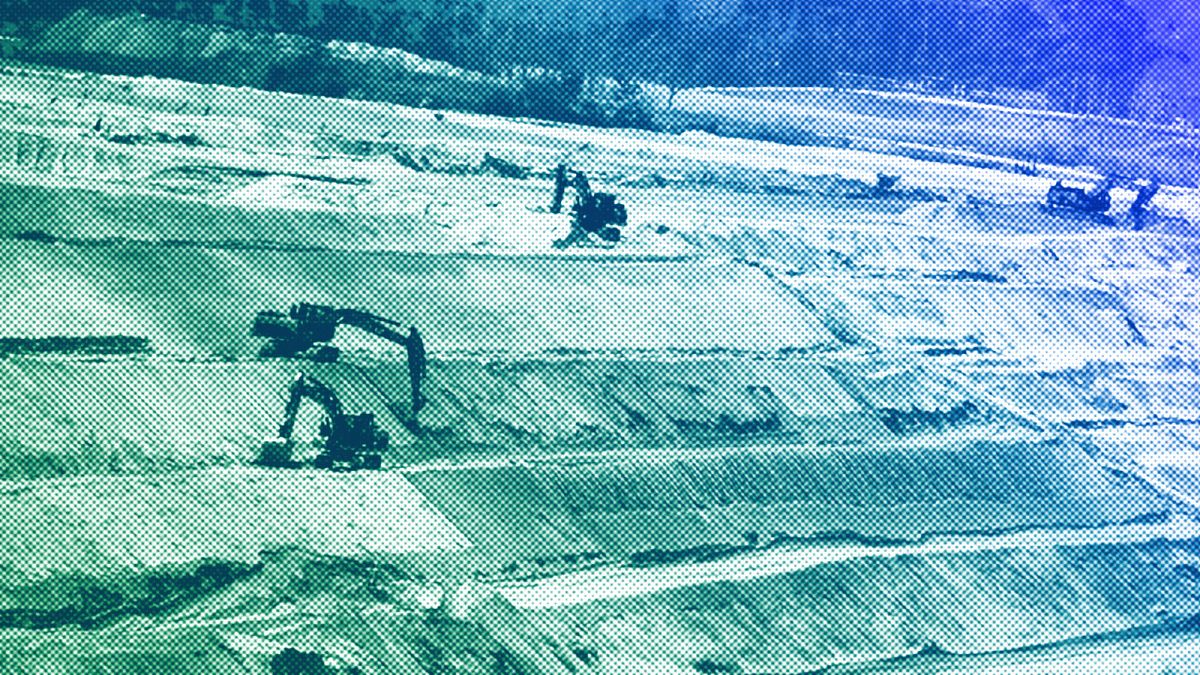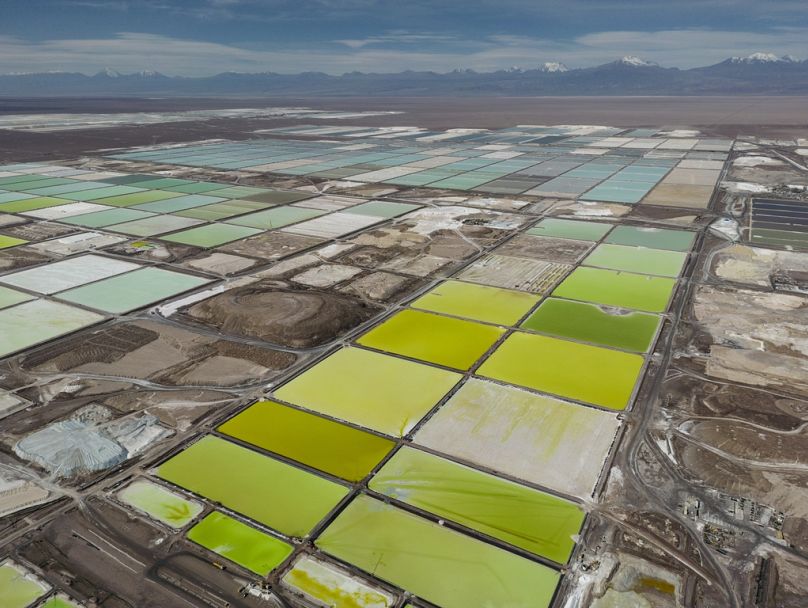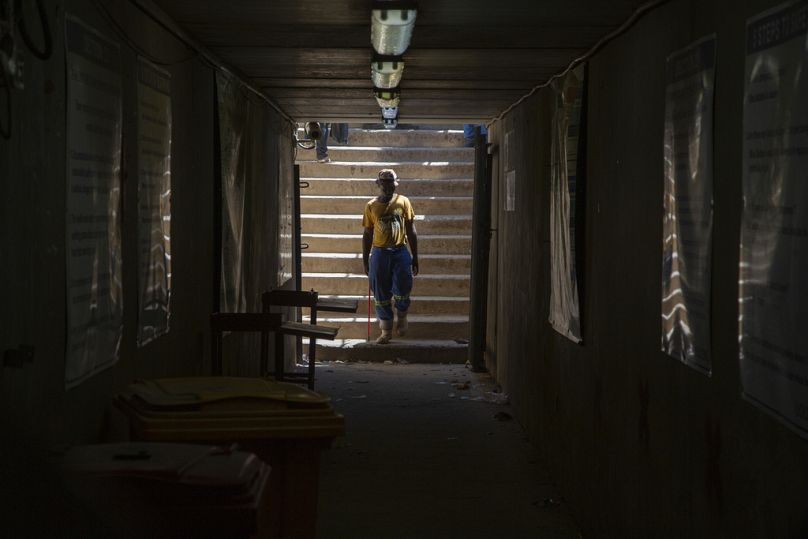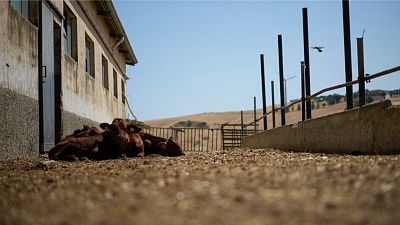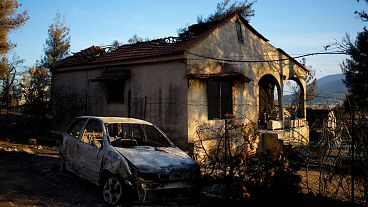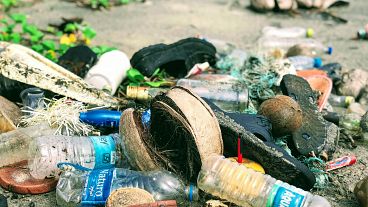With an increasingly divided political environment taking root in Europe, climate change must not be the victim of political polarisation. Cross-border strategic partnerships are integral to addressing global challenges, Guy Kioni writes.
Amidst the growing political divide that we are witnessing across the global West, leaders have failed to turn their attention effectively to the mounting danger of the climate crisis.
Climate change poses a threat not only in Africa and the developing world more broadly but also worldwide, requiring immediate attention and substantial time and investment.
Increased flooding, rising temperatures, extreme weather, and depleted resources are just a few of the dangers facing humanity, leading to some of the greatest migrations of people from country to country in human history.
The UK itself faced record-shattering heatwaves in the summer of 2022, resulting in wildfires, rising sea levels on the coast, and even citizens dying from heatstroke. Timing is critical in order to keep us from reaching the point of no return.
Sustainable answers are within reach. However, the mutual engagement of parties across the political divide is necessary.
As the issue of climate change in Europe has become radically politicised, with any concern about the environment increasingly seen as a left-leaning policy issue, bureaucratic red tape has prevented much-needed projects from moving forward.
At this time of great polarisation, leaders must put political differences aside to reach a mutual understanding regarding the importance of decarbonising the global economy and environmental practices. They must actively engage with foreign partners in pursuit of sustainable development in line with circular economy principles.
Addressing climate change is crucial for far more than the important task of safeguarding our natural environment.
Much overlooked reasons why climate issues should be of concern to parties on the left and right of the political aisle in Europe is their centrality in ensuring not only energy security but also economic stability for developing world countries, which in turn, reinforces economic resilience back home in Europe.
Investing in renewable energy and green tech fosters creativity while encouraging booming new industries to create further employment opportunities.
These, in turn, have a positive impact on stemming illegal migration, with economic opportunities opening up for would-be migrants in their home countries. Importantly, engaging with foreign partners strengthens diplomatic ties between far-flung regions, ensuring a lack of symbiotic relationships while fostering the international business sector.
Europe can't disregard partners abroad
The UK has now established itself as one of the most climate-secure nations in Europe and the only country to reduce its carbon emissions by over 50% in the past 35 years.
London, alongside Brussels, is expected to shoulder the role of leader of international climate discussions.
Europe has already centrally positioned itself in the climate space through its Education for Climate Control program, a vital component of the European Green Deal, aiming to educate future generations on the importance of sustainable development and the green transition.
By leveraging soft power while partnering with foreign nations and prioritising education, the UK and Europe can positively influence climate policies that foster international collaborations resulting in meaningful action.
Gulf countries like Saudi Arabia and the United Arab Emirates (UAE) have already recognised the need for economic diversification and are actively pursuing it through widescale investment in sustainable practices outside their borders. Saudi Arabia is in the process of implementing its ambitious Vision 2030 Initiative, diversifying their economy’s heavy reliance of fossil fuels by fueling partnerships with nations like Morocco.
Due to its abundance of natural resources and its geographic positioning, Morocco has the ability to play a significant role in the election vehicle (EV) battery supply chain throughout Europe as well.
Although Morocco’s location acts as a strategic bridge between Europe and Africa, China has been the primary beneficiary of the country’s green potential, with Chinese firms investing over $700 million (€640.6m) in Moroccan battery material plants, seeking to boost production.
Chinese dominance is apparent in Sub-Saharan Africa as well, with Chinese firms planning to invest $300m (€274.5m) in Zambia to access copper production. It has similar, even larger designs on Zimbabwe, where in November of last year it announced an almost $3 billion (€2.74bn) investment to secure unfettered access to some of Africa’s largest lithium deposits.
How does one offset China in Africa?
Offsetting China’s increased presence and geopolitical influence in Africa remains in Europe’s best interest. This can only be done, however, through securing a stable critical mineral supply chain from the region to Europe.
Closer relationships with countries like Saudi Arabia and Morocco, which have positioned themselves as players on the global battleground for EV battery supply chain security, must play a role in ensuring Europe’s transition to electric mobility globally.
There is a need to address the increasing Chinese control over critical minerals in Africa. A recent Wilson Center report estimated Beijing to already control around 8% of Africa’s critical mineral sector, including lithium, cobalt and copper, all materials without which EV batteries cannot be produced.
Indeed, the ongoing lack of decisive action on the part of European policymakers has given Beijing a substantial lead over the West in climate security technologies, running the risk of establishing a Western dependency on Chinese-led innovation and manufacturing.
Relationships with new allies across Africa are similarly important. The DRC, for example, has proven their renewed commitment to addressing climate change through its investment in the critical mineral industry and should be a central cog in any European critical mineral framework.
The DRC government has proven to be an effective partner, providing $3.5m (€3.2m) in subsidies for a copper and cobalt refinery project led by Buenassa, the country’s first integrated metals trading company.
The project is directed towards copper and cobalt, vital for rechargeable batteries and energy storage, facilitating the pivot towards electric mobility and the decarbonisation of the global economy.
The challenge with many African partners, however, is balancing their role in providing for much-needed European critical minerals while ensuring mining practices meeting international standards are in place, especially in terms of human rights, labour protections, and respect for environmental standards.
This issue was the focus of the recently held DRC Mining Week. The conference served as a platform for the UN Global Compact to highlight its vision for sustainable practices that protect human rights and gender equality, root out corruption and consider environmental needs.
All eyes on critical raw materials race
By integrating itself into the global EV battery supply chain due to its large reserves of copper and cobalt, the DRC may yet become an additional crucial link for EV battery production to European leadership and even Saudi investors.
Collaborations between countries like the DRC and Zambia can create market expansion and encourage sustainable mining practices regionally. While the road ahead is still a long one, working to improve these issues should take place alongside Europe establishing and developing much-needed relationships, given the time-sensitive nature of the challenge.
Cross-regional public-private partnerships will certainly accelerate the development and deployment of green technologies, attracting foreign investment and expertise, sourcing the critical minerals needed to address common challenges, and enhancing Europe’s capacity to lead in sustainability.
Indeed, strategic investments and international collaborations will be key to realising this potential, ensuring a greener and more sustainable future for all.
Guy Kioni is the CEO of Missang, a geostrategy and management consultancy firm.
Contact us at view@euronews.com to send pitches or submissions and be part of the conversation.


